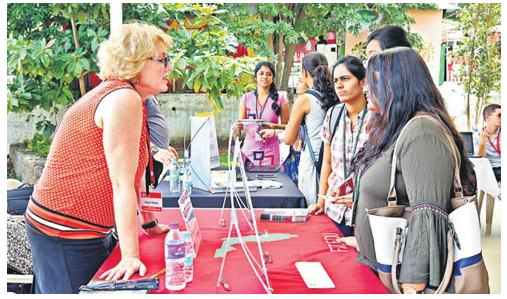Destination USA: Students safety and security top priority

U.S. universities have many protocols in place to ensure the safety and security of students, including the international community
Hyderabad: U.S. universities have many protocols in place to ensure the safety and security of students, including the international community. While these safety measures continue to evolve as schools aim to ensure students’ well-being, here are a few resources that parents, families, and international students can refer to in order to address any concerns related to student safety.
• Check on campus crime statistics: U.S. federal law requires all higher educational institutes to disclose the statistics on the number and types of crime that occur on each campus. One way to check this data is to visit the university webpage. The other way is to use the campus safety and security data analysis cutting tool at http://ope.ed.gov/security/
• Get to know the available resources: Most universities have their own campus police who patrol the campus 24/7, responding to emergencies and taking an active role in student and staff activities. In addition to campus police, U.S. universities also have campus safety teams that provide late night security and safety services, access to emergency phones, 24-hour hotlines, and apps that can help students directly reach out to an emergency services desk when in need. Campuses also provide professional mental health counsellors and can be reached out to for any kind of counselling services, including trauma.
• Ask questions: Before choosing to apply to a university, the student can set-up an appointment with the admissions and the international student counsellors at the university to check on the safety policies and other services that are provided to the students. Students should refer to the university safety resources page to understand safety procedures and protocols.
• Acquaint yourself with the campus: When students arrive at a university, they should attend any orientation programs offered and get familiarized with the location of the campus security, classrooms, and other important buildings and facilities. Students should save important emergency numbers and have them handy to be able to use them when needed.
• Stay vigilant: You play a critical role in your own safety – always be careful, alert, and aware. Students can sometimes get carried away with the degree of freedom they have at university and this can lead to accidents. Avoid situations where you might find yourself in danger and always behave responsibly. Nothing is worth jeopardizing your safety.
While U.S. universities are proactive when it comes to students’ safety, it is important to bear in mind that most campuses are open to the public. So while you can expect that universities will have many policies in place to prevent crime, there is no substitute for minding your own safety by avoiding risky situations and substances – know your limits and stick to them.







